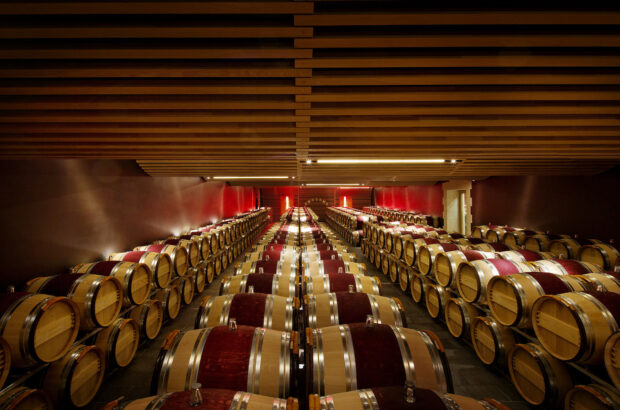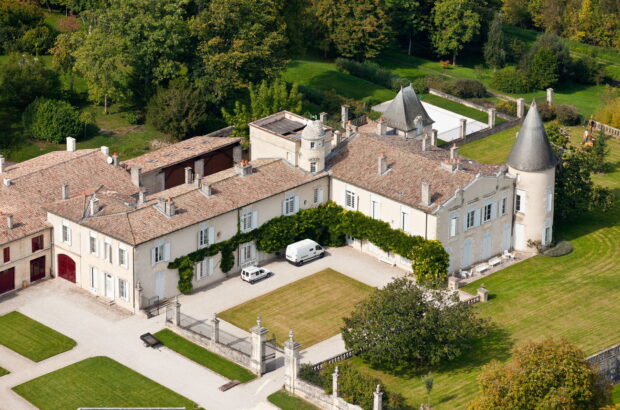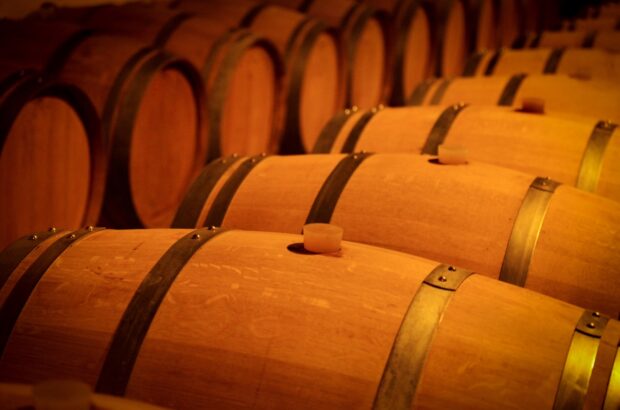Starting his career in the British Cavalry Regiment the 1st The Queen’s Dragoon Guards, Bridge moved to Portugal in 1994 and is now CEO of The Fladgate Partnership, which produces Taylor, Fonseca, Fonseca-Guimaraens, Krohn and Croft Ports. Bridge has been a driving force behind wine tourism in Porto, opening The Yeatman Hotel in 2010 and developing the city’s new Cultural Quarter including the World of Wine in 2020.
‘We can help to deseasonalise Port; try to encourage consumers to have Port at other times of the year, Port is not just for Christmas. People’s perception is well I’ll have a small glass of Port after Christmas lunch, because it’s traditional, to actually then giving people the confidence to enjoy Port and try it at different times of the year.’
‘Our White Port & Tonic and Pink Port & Tonic in a can are all about convenience. It’s also about different consumption moments. And it’s probably about a different consumer. We’re talking about more of a millennial than a traditional consumer. And that’s great. There’s a Port for everybody.’
‘I’m lucky because I get quite a large number of Ports to try. But at Christmas I think it is a special moment because you’ve got family around. So I want to open some good old vintage Ports, because those tend to be the special bottles you’re keeping for special occasions and I think Christmas with the family is a special occasion.’
‘What vintages are drinking well? The 70s are still wonderful – the 77s – and the 85s are great. Recently I’ve had some of the 92s and 94s and really enjoyed those.’
‘At 1828 steakhouse we serve young vintage Ports with the steak – and I find that a tremendously good combination. The latest young vintage is packed with fruit and lusciousness and actually the sweetness of that goes so well with the meat.’
‘On Christmas Eve we tend to do bacalhau which is Portuguese salted cod, done one way or another. But my favourite is probably bacalhau com natas, which is bacalhau with potato and cream, baked in the oven.’
‘I’ve had Christmases in all sorts of places: Antarctica was pretty interesting. When we arrived we had a white-out, which meant doing nothing for about a week, because you couldn’t see which way was up. I remember there was a major shortage of alcohol, because everything in Antarctica has to be flown in. So if you didn’t bring it with you: tough. We were with some South Africans who drank most of what they brought with them fairly swiftly – and prices of a bottle of whisky were $10,000.’
‘I’ve also done Christmas in St Lucia – I remember dressing up as Father Christmas on the beach.’
‘I’m a strong believer that there’s a wine for every occasion. And there are certain places in the world where people make fantastic wines. I love Champagne, but I’m particularly fond of Rieslings from Alsace.’
‘I think Riesling is a wonderful grape. The most recent one that I tried was from Portugal which tasted incredible. It had a very petroleum nose, very similar to an Alsacian, so I was quite surprised by that. It was from North Alentejo.’
‘I gave up coffee about 24 years ago. But the exception is Italy. I’ll have a cappuccino, if I’m on an Italian piazza in the morning, in Florence or somewhere, sitting with a nice cappuccino, thinking “Yes, I’m in Italy, living la dolce vita: me and my coffee”.’
‘I’m very privileged because it is difficult to tire of the Douro. But I also think I’m quite restless. I like to go and explore other places. I love mountains because I climb mountains, I feel solitude in mountains and I feel really in awe of nature – which I guess is what you get with the Douro as well. You look around you and can only be in awe of nature.’
‘This summer we were in Svalbard, looking at polar bears from a ship, well above the Arctic Circle. We spotted lots – it was great. I also went swimming, which was a bit chilly…’
‘I’m a bit of a history buff. I love history. I read a lot of history.’
‘I’ve had a very interesting career because I did six years in the British Army. Then I went into banking, which I loved, for six years. Then my father-in-law asked me to come over here and take on the challenge of this company. So I took over running the business in 98 and I formally took on the role on 1 January 2000.’
‘The latest reorganisation is to move the company out of the historic centre of Porto over the course of decades – that project started about 2010 – and moving it out so that we can convert that city centre to content that enriches the entire tourist offer of the city, and northern Portugal and Portugal itself.’
‘The Yeatman has helped to transform the city of Porto, has helped create an entire leisure destination which is booming, which has encouraged lots of other people to invest and as a result probably transformed lots of lives and to feel that I kind of had a part in that, at the beginning, that feels like a life well spent.’
‘Porto has this incredible history. It’s got amazing architecture. It’s got wonderful people, and it’s got lovely traditions of food. It’s obviously got a wine tradition – it’s one of the few places in the world that has a wine named after it. And yet, it never really had a hotel to do it justice. And that was what The Yeatman was about.’
‘In hospitality, you have to anticipate your customer’s needs and good service is normally when you have anticipated the customer’s needs before the customer knew what they needed.’
‘We want people to go away from The Yeatman thinking that they’ve had a really nice experience. And if you’ve had a nice experience, you’ll have a positive view of Porto. And then if we’ve given you a nice Port tasting, you have a positive view of Port, which is our core product. The advantage of all of that is we’ve got a little bit of your soul, a little bit of your attention. You’re saying: “Oh Port, yes, I remember when I went to Porto and that was a very special moment.” That, to me, is what wine tourism is about. If you can capture a little piece of people’s soul, so each time they see the product they’re reminded of something positive, then that’s so much more powerful than any marketing you could ever do.’












